- « Previous blog
-
Events
-
May 21, 2025
-
Jul 21, 2025
-
2138
-
0
- Next blog »
As hosting virtual events has become a common culture in companies, effective virtual event marketing strategies are essential for brands to stand out and make an impact. There is no significant difference in virtual event marketing and in-person event marketing. The only difference between the two types of event marketing is the time frame as the time span for virtual event marketing is usually shorter than in-person event marketing.
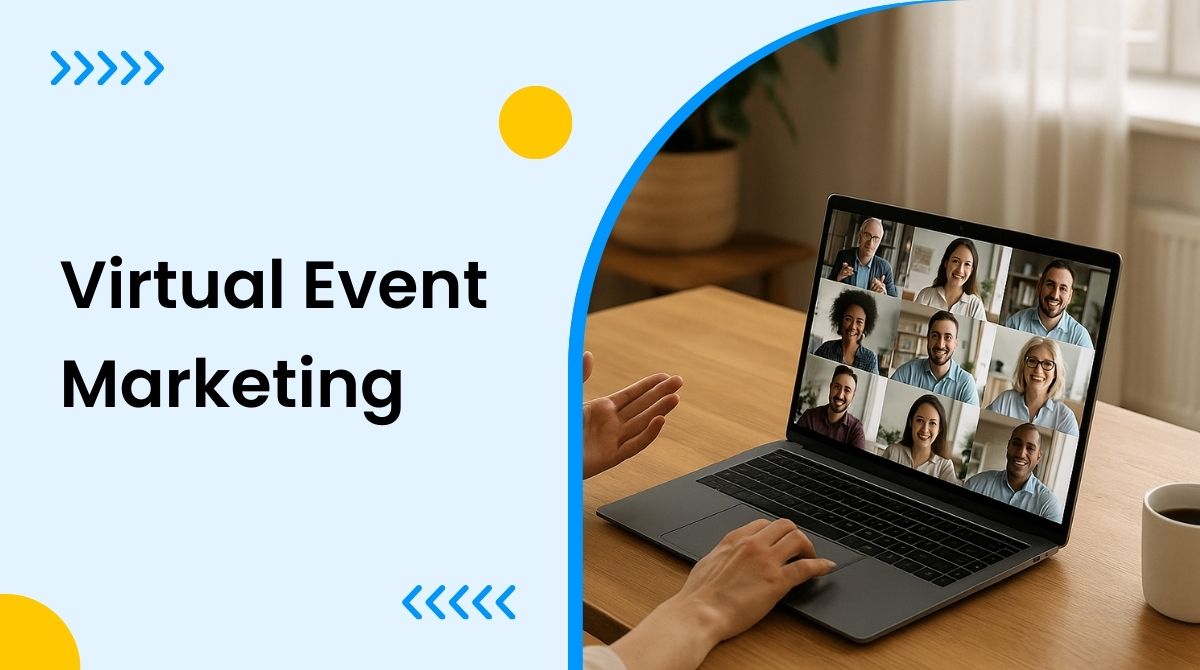
One of the most significant advantages of virtual events is its scope of expanding audience reach as it is not limited to geographical boundaries. According to research, the virtual events market is expected to reach USD $657.64 billion by 2030. To be a part of this growth and empower your upcoming virtual events, you need to implement some effective virtual event marketing strategies.
In this article, you will learn about virtual events, virtual events marketing tactics, best practices, and more.
What is Virtual Event Marketing?
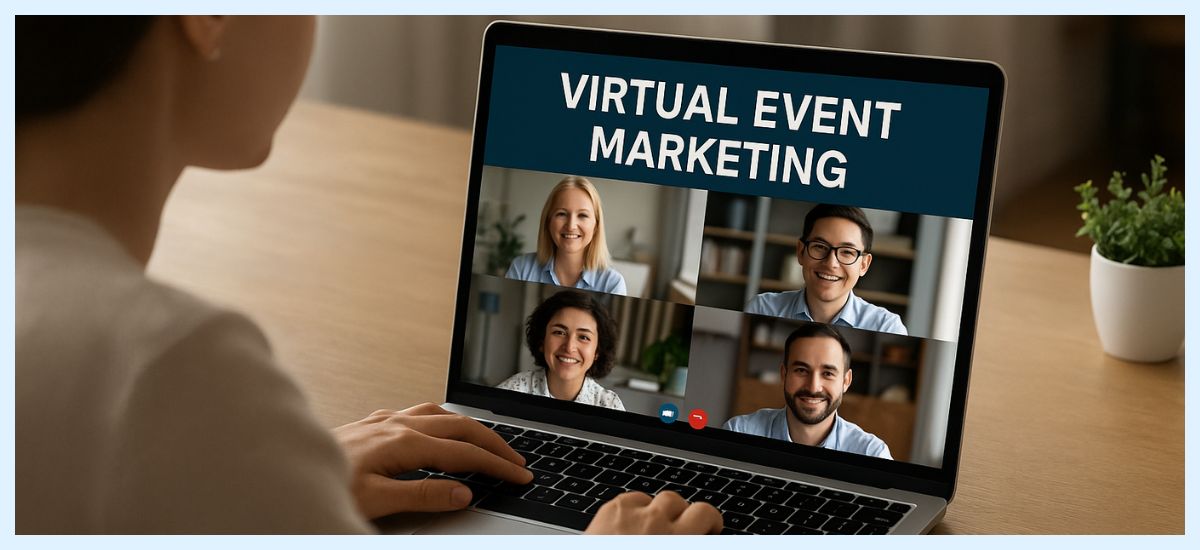
The term virtual event marketing refers to the promotional method of attracting a maximum number of attendees to a virtual event. A marketing plan for a virtual event covers various promotional tricks and tactics that increase event visibility, attendance and audience engagement.
Right from social media posts to email marketing everything falls under this category. Promoting a virtual event can be complicated as audiences participate it from different locations, with different targets, pain points, and reasons to be a part of it. That is why using a good virtual events platform is always recommended for the best results. In simple words, besides having a foolproof virtual event marketing plan, you will need a virtual event marketing platform to host successful virtual events.
Why Virtual Event Marketing Matters
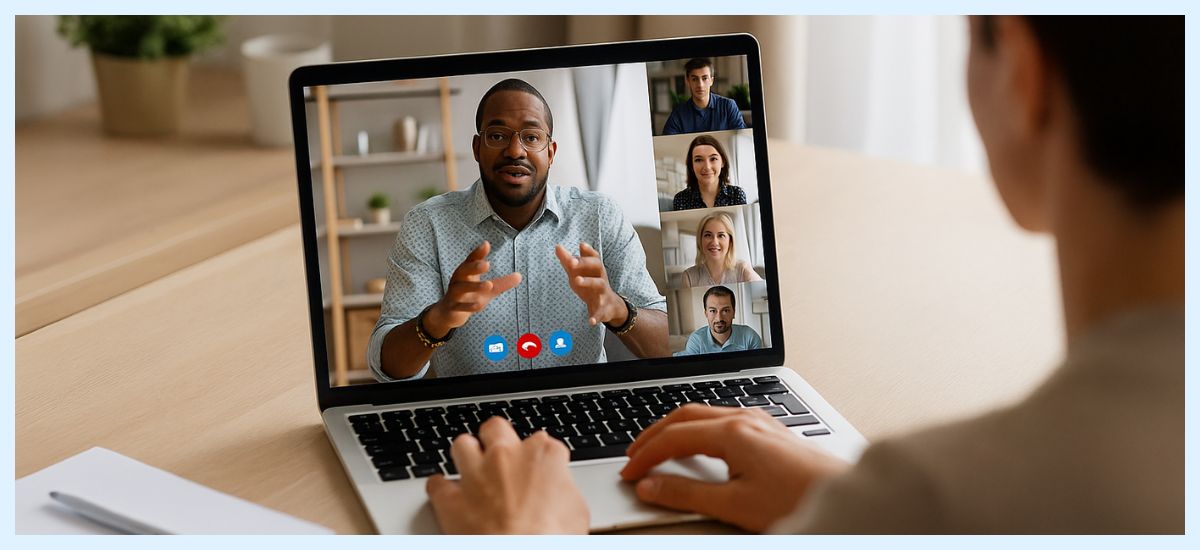
Virtual event marketing has become crucial for all types of businesses today to survive in the digital landscape. Here are the reasons:
- Wider audience reach: It offers businesses the platform to connect with their global audiences.
- Cost-effectiveness: Virtual events are mostly tech-driven and require fewer resources than in-person events like venue, guest food, accommodation, decoration, and more.
- Flexibility: In virtual events, attendees can join from anywhere. In fact, if they miss the live event, they may also get access to the recorded one for later use which certainly speaks for its flexibility.
- Sustainability: As online events are conducted digitally, paper, food, and water wastes are completely eliminated which makes such events sustainable.
- Data collection: Virtual event platforms offer valuable insights into the number of attendees, ticket sales, registration, attendee engagement, and more. This helps you make data-driven marketing decisions for your business.
- Better engagement: Businesses get better scope to engage attendees in virtual events through polls, Q&A sessions, chats etc, than in-person events.
How to Design an Effective Virtual Event Marketing Strategy
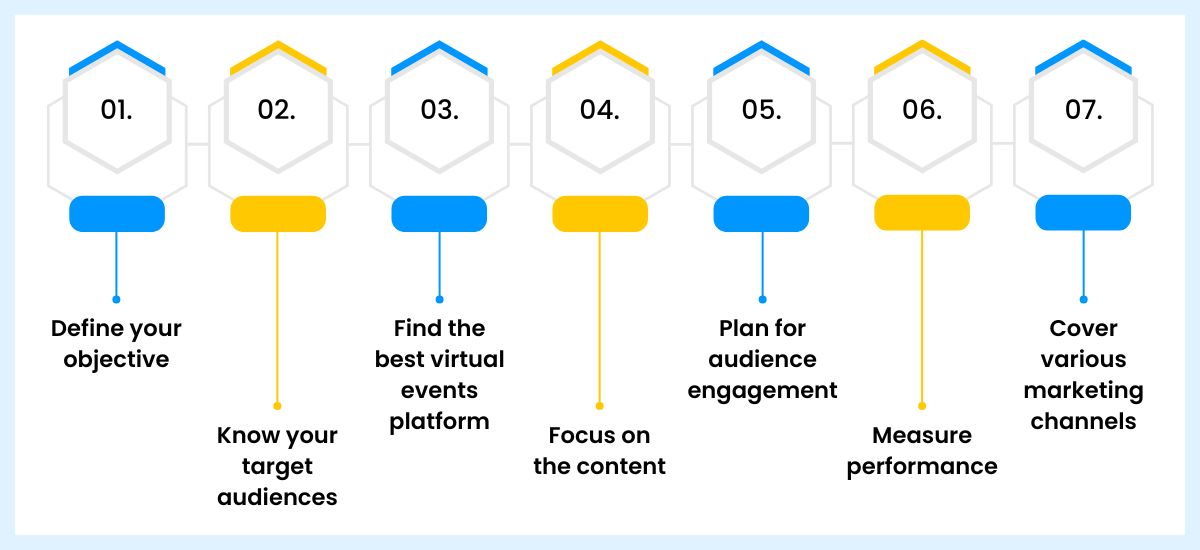
Designing an effective virtual event marketing strategy is imperative for businesses to stay ahead of the curve. Here are some tips to help you create the perfect strategy.
- Define your objective: Make sure you have a clear objective behind organizing a virtual event for your audiences. Determine if your event is for lead generation, product promotion, audience engagement or something else.
- Know your target audiences: Identify your target audiences in the market and find out about their likes, dislikes, professional backgrounds, preferences, and more to serve them better and mold marketing efforts accordingly.
- Find the best virtual events platform: Initiate proper research according to your requirements on virtual events platforms to find the most suitable one for your brand.
- Focus on the content: Create engaging presentations and event activities that your audiences will have an interest in.
- Plan for audience engagement: Incorporate polls, surveys, live interactions, Q&A sessions, pre-event teasers, and more.
- Measure performance: utilize reports and analytics to measure the success of your virtual events and identify areas for improvements.
- Cover various marketing channels: Make sure you involve social media, email marketing and more such marketing channels while designing an effective virtual event marketing strategy.
Virtual Event Marketing Ideas
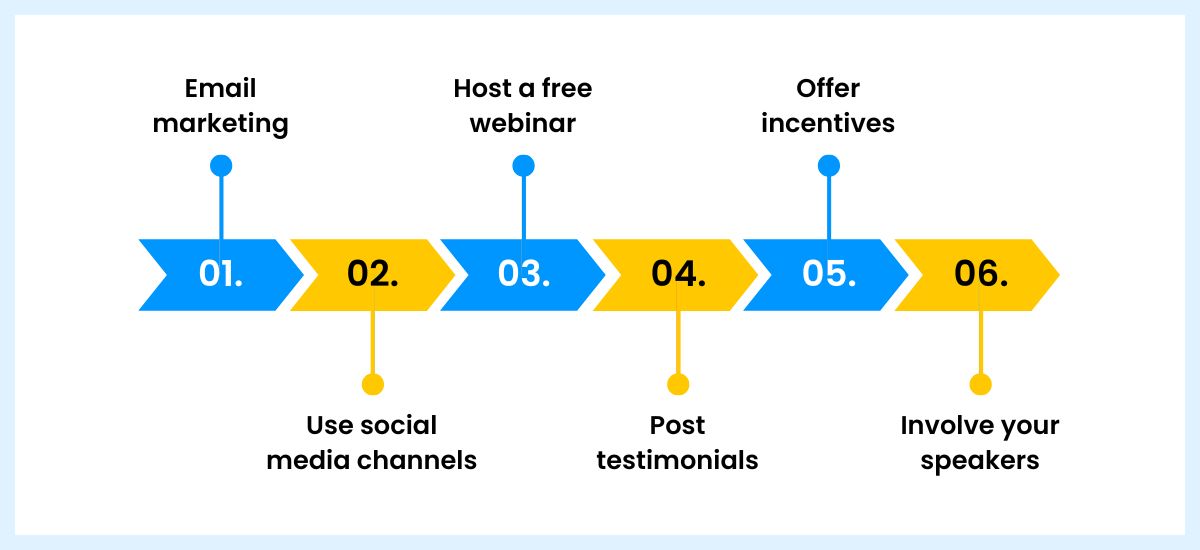
Discover some of the best virtual event marketing ideas:
1. Email marketing
Email marketing is probably the most affordable virtual event marketing method that allows you to stay connected with your audiences through regular updates. All you need to do is create an email list following useful strategies like networking, inviting and rewarding people or social media followers to share their email ids.As most of us receive hundreds of emails everyday, you need to make sure that your emails do not get lost in them. You need to craft your email marketing content in a way that will convince your audiences to open them.
You can send reminder emails, offer based emails, sale announcements, new product launches, surveys, and more. Make sure that you add a catchy and relatable subject to your email so that they can not ignore it.
Do not forget to add CTA button to your email like Register Now!, etc.
2. Use social media channels
When it comes to event marketing, social media channels are simply irresistible. Utilize popular social media platforms like Facebook and Instagram to promote your virtual events. Add regular posts on your events and event-related information. You can announce the names and details of your event speakers to attract more people to it, play games, run contests, offer rewards on ticket prices, and more.
Social media platforms have an amazing capability to attract poeple it. Besides promoting you can also share a glimpse of your previous events and share feedback on the same to encourage more and more people to register.
3. Host a free webinar
Host a free webinar to let your audiences know about your virtual events and to give them an idea of what they can expect from it. This not only builds trust in your audiences but also convinces them to register.
You can consider the following ideas for your free webinar:
- Initiate a discussion on your upcoming virtual event and start a conversation.
- You can also go for a panel discussion with speakers and ask guests to share their queries.
- Introducing yourself in the webinar with your story is also a good idea to build interest among your attendees.
You not only need to make your webinar an effective promotional platform for your virtual event but also provide useful information in it to make your audiences feel valued.
4. Post testimonials
Sharing testimonials on your website and social media pages offers a great way to build trust in your audiences. This helps them know what people think about your brand and helps you maintain transparency.
Genuine testimonials work as proof of your hard work and dedication to fulfilling their requirements. Consumers always prefer to hear from your real clients about their experience with you so that they can get an idea about it. You can easily do this through testimonials which is undoubtedly a great way to promote your virtual brands.
5. Offer incentives
People always love to get rewards and appreciate great deals. Just imagine the feeling when you get your favorite designer outfit on sale. You can promote your virtual events using the same strategy.
There is no doubt that as an event organizer, your ultimate aim is to provide great content to your virtual event which would genuinely offer solutions to their pain points. But what about offering them something extra?
Well, this would definitely make them happy. You can offer exclusive discounts on your virtual event ticket prices, offer early bird discounts, etc to incentivize your audiences.
6. Involve your speakers
Firstly, choose your speakers wisely and make sure they are popular among your target audiences. Once you finalize your speakers, ask them to promote your virtual events on their social media profiles. This will expose your virtual events to a wider audience resulting in a larger number of audiences in your events.
Why Invest in a Virtual Event Marketing Platform
Investing in a virtual event marketing platform is worth as it offers a plethora of benefits to your business. Besides this, it also increases operational efficiency, saves time with automation and accelerates growth.
- A virtual event marketing platform automates the entire marketing process including email marketing.
- It helps maintain customer data without any errors.
- Makes it easy for you to make data-driven marketing decisions.
- Shows clear reports on sales and revenue along with the effectiveness of your marketing campaigns.
If you are in search of a reliable virtual event marketing platform, you can opt for WP Event Manager’s virtual events and marketing add-ons that offer you a complete package for running your events smoothly.
Future Trends in Virtual Event Marketing
With rapid technical advancements, virtual events and the demand for it are expected to witness continuous growth. Our assumption about the future trends in virtual event marketing is based on the past and present trends of virtual event marketing.
We can consider the following developments in the future of virtual events marketing.
- Penetration of AI and machine learning in various aspect of virtual events.
- Gamification of virtual events where people will enjoy playing quizzes, leaderboards etc.
- Instant feedback generating system after each session.
- Advanced tools for diverse participation. For example usage of sign language for differently abled attendees and more.
- Sustainable practices.
Frequently Asked Questions (FAQs)
1. What Are Some Creative Ways to Promote a Virtual Event?
Some creative ways to promote a virtual event include
- Release event teaser.
- Utilize social media channels
- Usage of video content like reels, user testimonials etc.
- Use branded hashtags.
- Beautiful landing pages and more.
2. How Much Budget Should Be Allocated for Virtual Event Marketing?
The budget of your virtual event marketing activities usually depends on various factors like the event goal, whether paid tickets are sold for revenue etc.
virtual event marketing, companies usually plan to keep 10-20% of their overall marketing budget.
3. What Types of Lead Magnets Work Best for Virtual Event Registrations?
Lead magnets to increase virtual event registrations include:
- Webinars
- Short video content.
- Guides and ebooks.
- Discounts and giveaways.
4. Which Metrics Best Indicate Audience Engagement During a Virtual Event?
The most prominent audience engagement matrics in virtual events are:
- The number of chat messages.
- Participation level in polls.
- Social media engagement.
Interactions and inquiries were made in Q&A sessions.
Conclusion
We hope that the article will help you ace the game of virtual event marketing effortlessly. Besides these ideas, you need to ensure that you have a great virtual events platform to automate and streamline major tasks of your events including marketing.
 Use coupon code:
Use coupon code:  Something exciting is coming soon – stay tuned to find out! 🚀✨
Something exciting is coming soon – stay tuned to find out! 🚀✨
